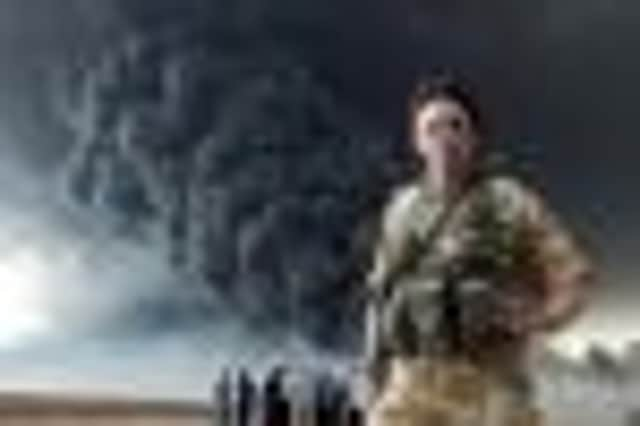Iraq: BBC documentary says invasion based on lies


A BBC Panorama investigation, broadcast to mark the tenth anniversary of the start of the Iraq War, suggests that United States and United Kingdom security services relied on several pieces of questionable information, while dismissing others that were contradictory.
The war on Saddam Hussein’s regime, which started on 20 March, 2003, lasted more than six years, claimed the lives of 179 UK personnel, more than 100,000 Iraqis, and cost more than £9 billion.
Advertisement
Hide AdAdvertisement
Hide AdBritain ended combat operations in 2009, but, a decade from its commencement, the war remains unfinished business, with questions about the legality of the invasion, and the conduct of British troops.
Tonight’s Panorama, The Spies Who Fooled The World, documents the chain of secret information that contributed to the decision to invade, including new testimonies from intelligence sources. It tells how claims from a few sources that Iraq was manufacturing weapons of mass destruction (WMD) were used to justify the war.
In his first TV interview on the subject, August Hanning, former head of German Intelligence, said Iraqi spy Rafed al-Janabi told German secret services he had witnessed the manufacture of chemical and biological weapons, including mobile facilities to produce them.
The information was passed by the Germans to American and British intelligence, along with concerns about its reliability, Mr Hanning said.
Former Central Intelligence Agency Europe division chief Tyler Drumheller also claimed he passed warnings about Mr al-Janabi’s claims up the chain of command, while Mr Hanning said he also sent a personal cable to then CIA director, George Tenet.
Mr Tenet denies receiving the warnings, the programme says. A claim from another source to French security services – which suggested Iraq was buying huge amounts of uranium ore – is said to have spread like “contagion” through the intelligence community. Pierre Brochand, former head of France’s MI6 (the Directorate-General for External Security or DGSE), told Panorama: “We felt that intelligence was used to justify a war, which was a war of choice, of pure choice. But the intelligence was used to disguise that as a war of necessity.”
The in-depth programme heard how the controversial “45-minute” claim originally referred to battlefield rather than long-range weapons.
It also described how Iraq’s foreign minister, Naji Sabri, and head of intelligence, Tahir Habbush al Tikriti, separately revealed to the CIA and MI6 that there was no active WMD programme, but that information was not given the same credence.
Advertisement
Hide AdAdvertisement
Hide AdPanorama revealed that Lord Butler of Brockwell, whose report into the use of intelligence in the run-up to the war found that some of the information about WMD was seriously flawed, was not aware at all about the Iraqi minister’s comments.
Reporter Peter Taylor said: “The revelation that there were two key pieces of intelligence that came in six months and three months before the war from the Iraqi foreign minister and the Iraqi head of intelligence flew in the face of all the other intelligence. It puts a new perspective on the whole sorry episode.”
The Spies Who Fooled The World: A BBC Panorama Special, is broadcast tonight on BBC One at 10:35pm.